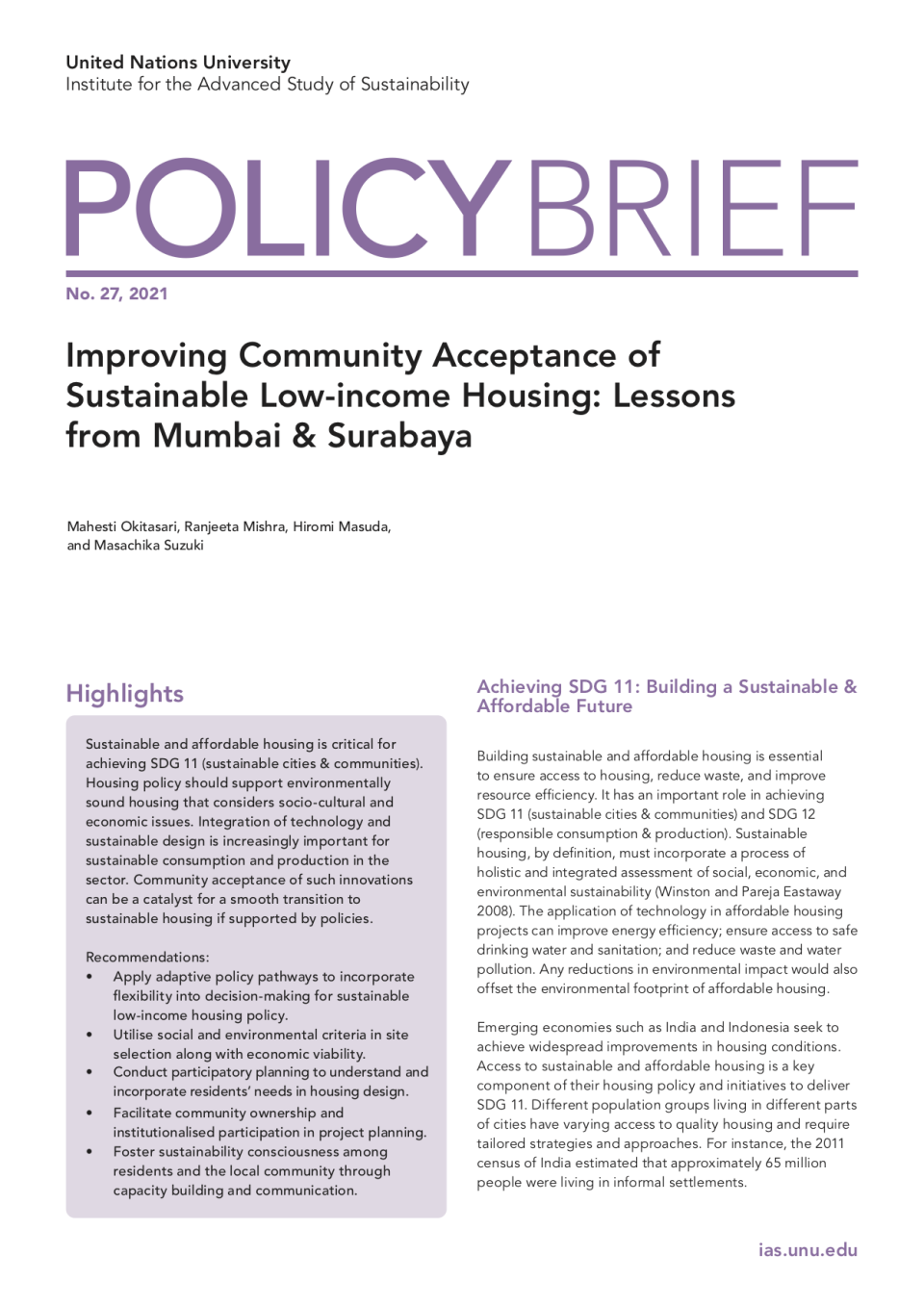A new UNU-IAS Policy Brief puts forward recommendations on strengthening community support for technology and sustainable design in affordable housing projects. The brief, Improving Community Acceptance of Sustainable Low-income Housing: Lessons from Mumbai & Surabaya, offers advice to help policymakers and housing practitioners transition towards more sustainable practices and advance efforts to achieve SDG 11 (sustainable cities and communities). Drawing on research in Mumbai and Surabaya, the authors propose a flexible and participatory approach to build understanding, support, and engagement in the community.
The brief is co-authored by Mahesti Okitasari, Ranjeeta Mishra, Hiromi Masuda, and Masachika Suzuki. It is based on research conducted as part of the UNU-IAS Governance for Sustainable Development project. The brief is available to download from UNU Collections.
Highlights
Housing policy should support environmentally sound housing that considers socio-cultural and economic issues. Integration of technology and sustainable design is increasingly important for sustainable consumption and production in the sector. Community acceptance of such innovations can be a catalyst for a smooth transition to sustainable housing if supported by policies.
Recommendations:
- Apply adaptive policy pathways to incorporate flexibility into decision-making for sustainable low-income housing policy.
- Utilise social and environmental criteria in site selection along with economic viability.
- Conduct participatory planning to understand and incorporate residents’ needs in building design.
- Facilitate community ownership and institutionalized participation in project planning.
- Foster sustainability consciousness among residents and the local community through capacity building and communication.




